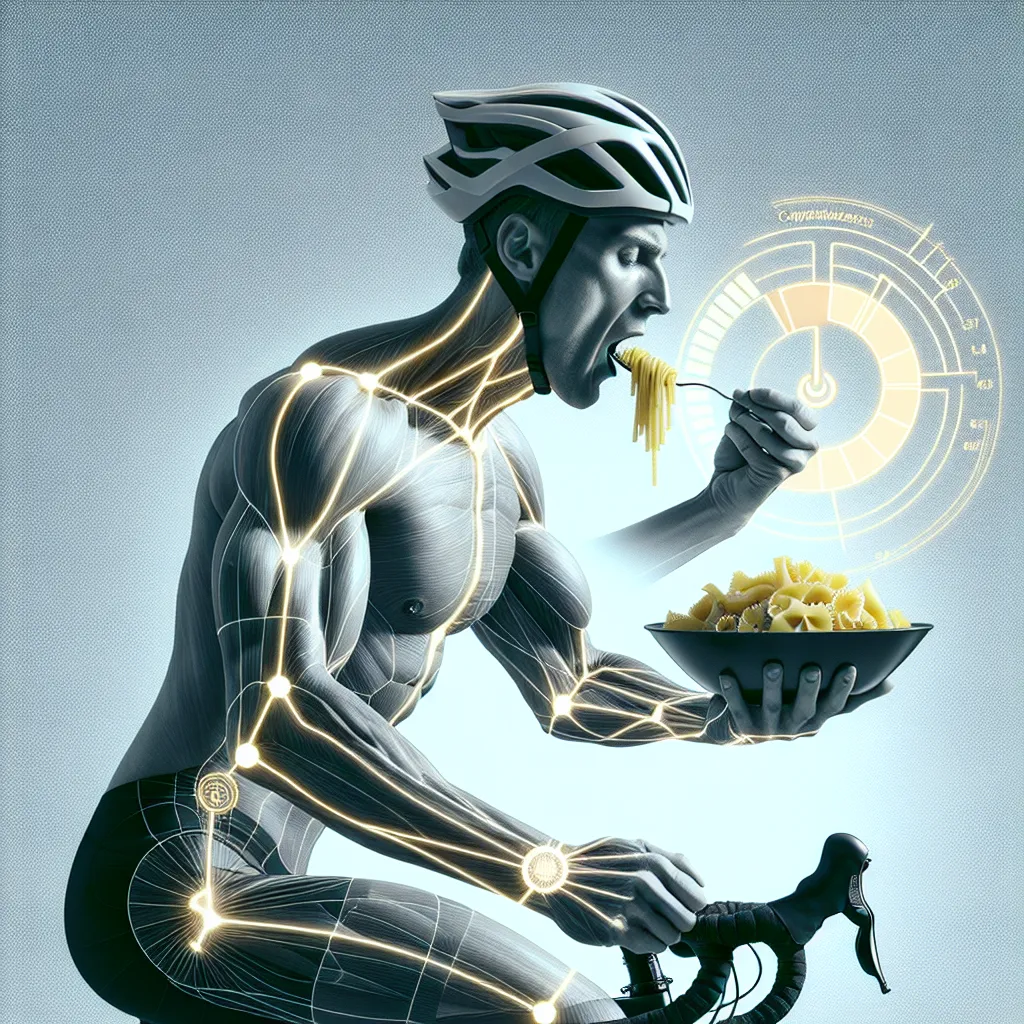Optimizing Pre-Race Nutrition: The Role of Carbohydrates in Cycling Performance
An in-depth guide on the importance of carbohydrates for cyclists, focusing on energy provision, carbohydrate loading strategies, and optimal pre-race meal planning to enhance performance.

Introduction to Carbohydrates in Cycling
Carbohydrates serve as the primary energy source for cyclists, especially during high-intensity and endurance events. Understanding how to effectively utilize carbohydrates can significantly impact performance and recovery.
Understanding Carbohydrate Requirements for Cyclists
Cyclists' carbohydrate needs vary based on training intensity, duration, and individual metabolism. General recommendations suggest consuming 6 to 10 grams of carbohydrates per kilogram of body weight daily during training periods to maintain glycogen stores and support energy demands.
Carbohydrate Loading Strategies
Carbohydrate loading involves increasing carbohydrate intake prior to a race to maximize muscle glycogen stores, thereby enhancing endurance performance. Effective strategies include:
- Duration: Initiate carb-loading 36 to 48 hours before the event.
- Intake Levels: Aim for 8 to 12 grams of carbohydrates per kilogram of body weight per day during this period.
- Food Choices: Focus on easily digestible, high-carbohydrate foods such as pasta, rice, bread, and certain fruits.
Implementing these strategies can help delay fatigue and improve performance during prolonged cycling events.
Pre-Race Meal Planning
The meal consumed before a race plays a crucial role in topping off glycogen stores and ensuring optimal energy availability. Key considerations include:
- Timing: Eat a carbohydrate-rich meal 2 to 3 hours before the race.
- Composition: Include low-glycemic index carbohydrates for sustained energy release, moderate protein, and low fat to facilitate digestion.
- Examples: Oatmeal with fruits, whole grain toast with honey, or a banana with yogurt.
Proper pre-race meal planning helps maintain blood glucose levels and prevents hunger during the event.
Glycemic Index and Food Selection
The glycemic index (GI) measures how quickly a carbohydrate-containing food raises blood glucose levels. For sustained energy, cyclists should focus on low to moderate GI foods in their regular diet and pre-race meals. High-GI foods can be beneficial immediately before or during the race for quick energy boosts.
Hydration and Carbohydrate Intake
Adequate hydration complements carbohydrate intake by facilitating digestion and energy utilization. Including electrolyte-rich beverages and monitoring fluid intake ensures optimal performance and prevents dehydration during the race.
Common Mistakes in Pre-Race Nutrition
Avoiding common pitfalls can enhance the effectiveness of pre-race nutrition strategies. These include:
- Overeating: Consuming excessive amounts of food can lead to discomfort and sluggishness.
- Trying New Foods: Introducing unfamiliar foods may cause gastrointestinal issues.
- Neglecting Timing: Eating too close to the race start can result in inadequate digestion and energy availability.
Being mindful of these factors helps optimize energy levels and performance.
Conclusion and Recommendations
Effective carbohydrate management is essential for cycling performance. By understanding individual carbohydrate needs, implementing strategic carb-loading, planning pre-race meals thoughtfully, and maintaining proper hydration, cyclists can enhance endurance and achieve optimal results. Consulting with a sports nutritionist can provide personalized guidance tailored to specific training regimens and goals.
